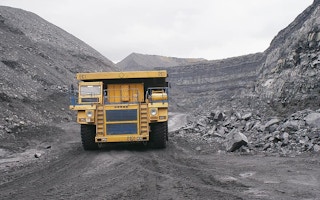A new analysis by the Institute for Energy Economics and Financial Analysis (IEEFA), an energy think-tank, urges the Indonesian government not to provide a coronavirus bailout to the country’s ailing coal mining industry.
To continue reading, subscribe to Eco‑Business.
There's something for everyone. We offer a range of subscription plans.
- Access our stories and receive our Insights Weekly newsletter with the free EB Member plan.
- Unlock unlimited access to our content and archive with EB Circle.
- Publish your content with EB Premium.
Propping up the sector, which faces multiple risks beyond the immediate perils posed by the coronavirus-induced economic slump, could leave Indonesia lumbered with underperforming coal assets and cost billions at a time when government revenues are down sharply, warns the report.
If Indonesia were to grant industry-wide royalty relief to salvage mining firms, it would put at risk US$1.1 billion in royalties and US$1.2 billion in taxes collected last year from the 11 coal companies analysed. A royalty is the amount charged by states for the right to extract resources.
With the coal sector on the decrease globally, deploying capital to save inefficient assets that market forces would otherwise see go under would also not be an ideal use of limited financial resources, as any funds committed could fail to generate targeted returns, states the analysis.
“
Allowing poorly run coal mines and companies to fail may be the economically correct option.
Ghee Peh, energy analyst, Institute for Energy Economics and Financial Analysis
With their financial health linked to coal markets, mining firms have been hit hard by plummeting power demand and coal prices in the wake of the Covid-19 crisis. From US$68 a tonne in March this year, the average benchmark coal price has fallen 30 per cent, reaching US$47 a tonne in August.
Within Indonesia’s coal industry, average breakeven prices—the amount of money for which corporations must sell their coal to cover the costs of production—stood at US$53 a tonne in the first half of 2020. This means present rates signal acute financial distress for the sector.
The analysis finds that out of 11 Indonesian miners surveyed, only one—Bayan Resources—is currently making a profit. It estimates that the period from July to September has seen firms run unprofitably and use up cash reserves to keep operations afloat.
Things are not expected to become easier either, as IEEFA forecasts that benchmark prices to remain at present levels for at least another 12 months. Such bleak business conditions will prompt stakeholders to ask increasingly tough questions about the financial status of the industry.
Indonesian coal miners have not yet made the case for a government bailout, but IEEFA says the sector seems “poised” to push for relief from royalty obligations if low prices persist.
Coal collapse
Ghee Peh, IEEFA energy analyst and the author of the report, said the economic value of coal assets and reserves was set to come under pressure as energy markets pivot to cheaper renewables and the fossil fuel loses its lustre among traditional investors as well as industry players.
Some of Indonesia’s major coal export markets, including China and India, are slashing imports and increasingly turning to domestic sources to bolster energy security. Both Bangladesh and Vietnam are considering scrapping coal-heavy power plans in favour of gas and renewables.
“As coal asset values decline, current operators and potential buyers have to reassess any decision to proceed. They may well end up with stranded assets,” Peh told Eco-Business. “Bad assets should be shut down.” Generators become stranded assets when they no longer yield sufficient returns.
Peh said nearly 140 significant global financiers, insurers and asset managers had already announced their divestment from coal financing, and major international miners such as Australia-based Rio Tinto and South Africa-based Anglo American have been backing away from coal assets since 2016.
The Australian mining behemoth BHP said last month that it intends to sell its Mount Arthur thermal coal operations and three other mines. Peh observed that these moves signalled a negative view on the risk profile of coal assets.
Let market forces run their course
The report reveals that five of the firms reviewed have larger portions of debt relative to equity capital that they could rely on for financing, making them more vulnerable to price fluctuations. They are Bumi Resources, ABM Investama, Geo Energy Resources, Toba Bara and Indika Energy.
Bumi Resources, ABM Investama and Geo Energy Resources in particular stand out for being structurally weak due to their required high breakeven prices of up to US$63 a tonne in addition to enormous debt loads.
Even with some measure of relief, these firms will struggle to juggle their bills in increasingly challenging markets, predicts the analysis. At the end of 2019, the Indonesian coal sector was already saddled with a total debt of US$6.5 billion.
IEEFA states that support for the coal sector would not resolve its structural issues in the long run and merely represent a form of relief for Indonesian and foreign lenders backing the sector, which include Bank Mandiri, Bank Negara Indonesia, Bank Rakyat Indonesia and Permata Bank.
“Any financial assistance provided to the coal industry will go straight into the hands of lenders, leaving a broken industry still broken,” said Peh.
“Any government bailout to the coal industry would put at risk further royalties the country sorely needs, while protecting underperforming companies in decline,” he continued. “Allowing poorly run coal mines and companies to fail may be the economically correct option.”














